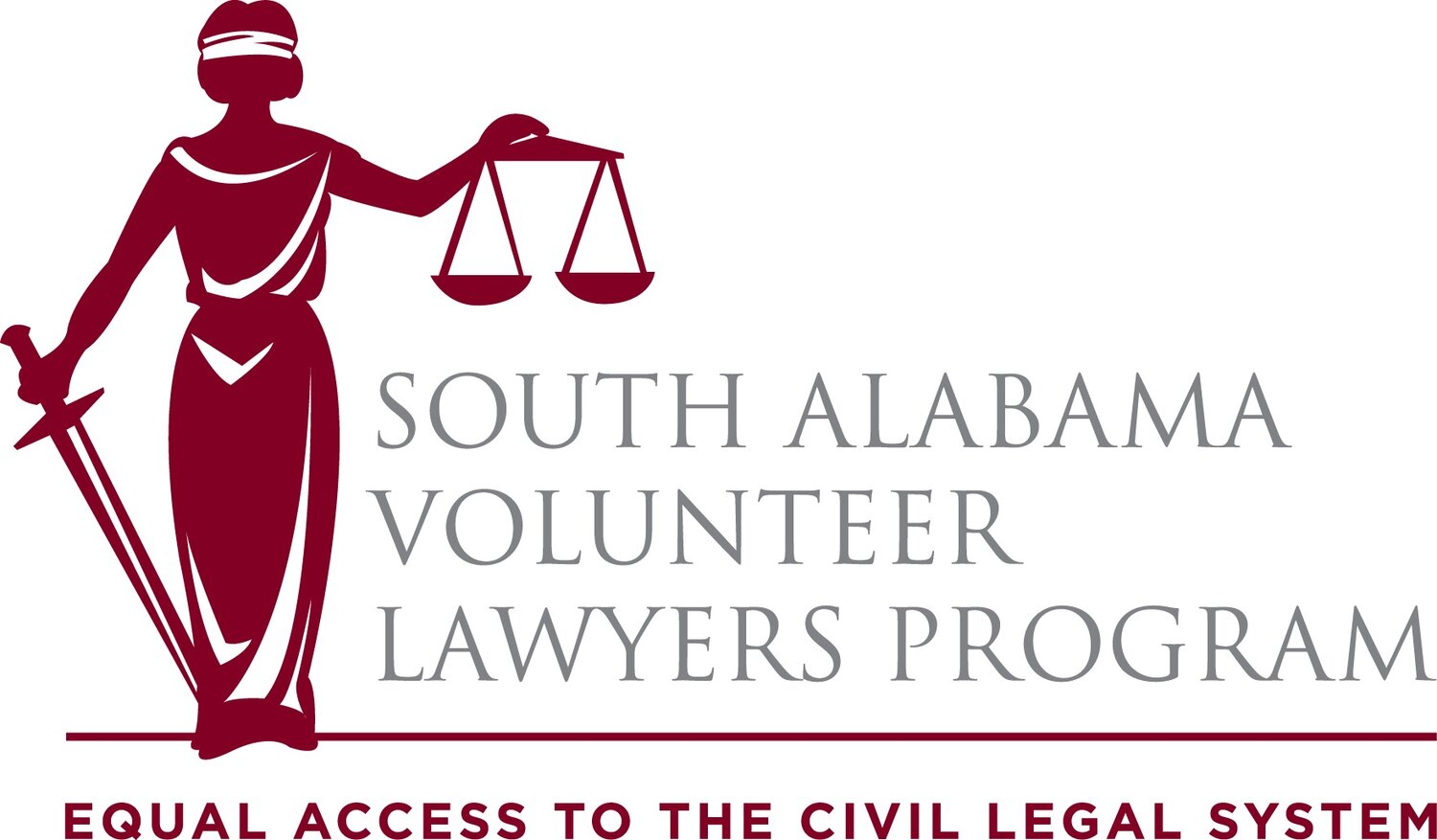Frequently Asked Questions
What kinds of cases do you handle?
SAVLP handles certain civil matters, including Chapter 7 Bankruptcy, foreclosure defense, tenant’s rights issues, consumer finance, certain probate and family law issues, and many more. For a more complete list, see the Services and Eligibility section under the Get Help tab.
Do you handle criminal cases?
No. SAVLP does not handle criminal matters. We are also restricted from handling fee-generating matters, class actions, rulemaking and lobbying.
Is there an income requirement for clients?
Yes. To qualify, you must meet certain income and asset limits. SAVLP assists low-income clients. Please call the SAVLP office or submit an application if you think you might qualify.
How do I apply for help?
You can call the SAVLP intake line at 251-438-1102 or apply in person on the fourth floor of Government Plaza, Tuesday and Wednesday from 1:00 pm - 3:00 pm. We also offer FREE Limited Legal Advice Clinics where you can meet with a volunteer attorney for limited legal advice. For more information about getting Free Legal Advice, click here.
Can I call the office and ask an attorney a quick question?
No. You must apply for SAVLP services. If you have a problem that falls within our guidelines and you meet the income requirements, SAVLP will assign you an attorney.
For answers to quick questions, you may attend one of the free limited legal advice clinics.* You may call the Alabama State Bar Lawyer Referral Service at 800-392-5660 to hire a private attorney. This service can give you the name of a lawyer who handles you type of case and for a small fee, you can talk to that lawyer about your problem.
How much will I have to pay?
SAVLP attorneys donate their time to assist our clients, so you won’t have to pay the attorney anything. You are responsible for any out-of-pocket costs (court filing fees, publication notices, bonds, etc.). Your attorney can tell you what costs to expect for your case.

